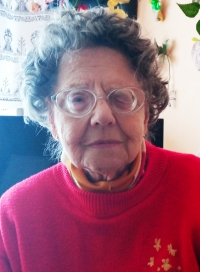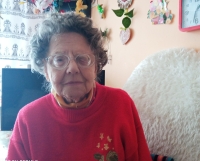Religious sisters beat me and I was hungry

Download image
She was born on November 11, 1942 in Zábřeh na Moravě. Her father died in a concentration camp, her mother was sentenced to fifteen years in prison for a serious crime shortly after her birth. Immediately after the arrest of her mother, German soldiers took the witness to a monastery in Dresden. She didn’t learn to read or write there, she didn’t know Czech. They claim that the religious sisters beat the children and let them starve. She witnessed some children die in the monastery. Her mother had her sentence reduced by five years and then took her out of the monastery. The religious sisters did not want to hand her over, so the court had to decide. They identified her as a citizen of Czechoslovakia, even though she could not speak a word of Czech. She lived with her mother and stepfather in Honezovice in the Pilsen region. She was a victim of domestic violence, her mother treated her cruelly and caused her serious injuries. From the age of ten she had to milk cows and help in the fields. She got married at eighteen, and she and her husband moved to northern Moravia. They settled in Třebom in the Opava region. After that, she worked in agriculture all her life. In 2022, she lived in Ostrava.

